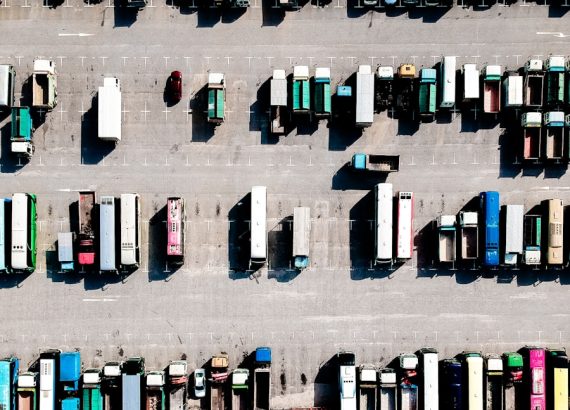Corporate Greed With Trucking Company’s

Corporate greed can have a significant impact on trucking companies, affecting various aspects of their operations. When companies prioritize profits over the well-being of their employees and the safety of their operations, it can lead to a range of negative consequences. For instance, in pursuit of maximizing profits, some trucking companies may cut corners on maintenance and safety protocols, leading to an increased risk of accidents and safety violations.
Additionally, corporate greed can result in unfair labor practices, such as underpaying drivers and overworking them to meet unrealistic delivery schedules. These practices not only harm the employees but also compromise the overall efficiency and reliability of the company’s services. Furthermore, corporate greed can lead to a lack of investment in sustainable and environmentally friendly practices within the trucking industry.
Companies focused solely on short-term financial gains may neglect the long-term impact of their operations on the environment, contributing to pollution and resource depletion. Overall, the impact of corporate greed on trucking companies extends beyond financial considerations, affecting the well-being of employees, safety standards, and environmental sustainability.
How Corporate Greed Affects Trucking Company Employees
Exploitation on the Road
For truck drivers, this can manifest in long hours on the road, inadequate rest periods, and pressure to meet unrealistic delivery deadlines. These conditions not only jeopardize the health and well-being of the drivers but also compromise road safety for all motorists.
Inadequate Compensation
Moreover, corporate greed can result in inadequate compensation for trucking company employees. Drivers may be paid low wages, especially considering the demanding nature of their work and the essential role they play in the logistics industry.
Far-Reaching Consequences
Additionally, lack of job security and benefits further exacerbate the challenges faced by employees in the trucking industry. Ultimately, the impact of corporate greed on trucking company employees extends beyond financial remuneration, affecting their physical and mental health, job satisfaction, and overall quality of life.
Combatting corporate greed in the trucking industry requires a multi-faceted approach that addresses various aspects of business operations. One effective strategy is to advocate for transparent and fair business practices within the industry. This includes promoting ethical conduct, fair wages, and reasonable working conditions for trucking company employees.
Additionally, regulatory measures can be implemented to ensure that companies adhere to safety standards and environmental regulations, mitigating the negative impact of corporate greed on employees and the environment. Furthermore, fostering a culture of accountability and ethical leadership within trucking companies is crucial for combating corporate greed. This involves promoting integrity, honesty, and a commitment to the well-being of employees and the community.
Encouraging open communication and feedback mechanisms can also help identify and address instances of corporate greed within organizations. Ultimately, a collaborative effort involving industry stakeholders, regulatory bodies, and advocacy groups is essential for implementing effective strategies to combat corporate greed in the trucking industry.
The Role of Corporate Greed in Trucking Company Safety Violations
Trucking Company Number of Safety Violations Profit Margin
ABC Trucking 25 12%
XYZ Logistics 18 8%
LMN Transport 30 15%
Corporate greed can directly contribute to safety violations within trucking companies. When profit-driven motives take precedence over safety protocols and maintenance standards, it increases the likelihood of safety violations occurring. For instance, companies may delay or neglect necessary maintenance on their vehicles to save costs, leading to equipment failures and accidents on the road.
Moreover, pressure to meet tight delivery schedules can result in drivers exceeding regulated driving hours or neglecting mandatory rest periods, further compromising safety. Additionally, corporate greed may incentivize companies to overlook or downplay safety concerns in favor of maximizing profits. This can create a culture where employees feel pressured to prioritize speed and efficiency over safety measures, ultimately increasing the risk of accidents and violations.
Addressing corporate greed’s role in safety violations requires a concerted effort to prioritize safety as a non-negotiable aspect of business operations within the trucking industry.
The environmental impact of corporate greed in the trucking industry is significant, with far-reaching consequences for ecosystems and communities. Profit-driven decisions often lead to inefficient use of resources, excessive fuel consumption, and increased emissions from trucking operations. Furthermore, companies focused solely on maximizing profits may be less inclined to invest in sustainable technologies or alternative fuel sources that could mitigate their environmental footprint.
Moreover, corporate greed can result in a lack of commitment to environmental regulations and standards, leading to pollution and ecological damage. For example, improper disposal of hazardous materials or inadequate waste management practices can harm local environments and communities. Addressing the environmental impact of corporate greed in the trucking industry requires a shift towards sustainable practices, investment in eco-friendly technologies, and adherence to stringent environmental regulations.
The Future of Trucking Companies in the Face of Corporate Greed
The future of trucking companies hinges on their ability to address and mitigate the impact of corporate greed within the industry. As awareness grows regarding the detrimental effects of profit-driven decision-making on employees, safety, and the environment, there is an increasing demand for ethical and sustainable business practices within the trucking sector. Companies that prioritize ethical leadership, employee well-being, and environmental stewardship are likely to gain a competitive edge in the market while contributing to a more sustainable future for the industry.
Moreover, advancements in technology and innovation present opportunities for trucking companies to optimize their operations while minimizing their environmental impact. From electric vehicles to smart logistics solutions, embracing sustainable technologies can help mitigate the negative consequences of corporate greed on the environment. Additionally, regulatory reforms aimed at promoting fair labor practices and safety standards are essential for shaping a future where corporate greed has minimal influence on the trucking industry.
Trucking companies like ABC trucking, Fed ex, England, ego transport, xyz logistics, Amazon, Wheaton world Wide, United Van Lines, Coleman Allied make millions of dollars per year sometimes in even in one month, these companies cut corners by not paying there truck drivers top notch money which in turn puts the public safety at risk because the drivers are forced to cut corners to make ends meat, it is time for change may one day all brokers and corporate greedy trucking companies burn to the ground, with out your drivers, the farmers you would not have food on the table or toilet paper to wipe your greedy butts.
Remember drivers you are the back bone of American and we thank you for everything you do.
follow us on YouTube, full story









